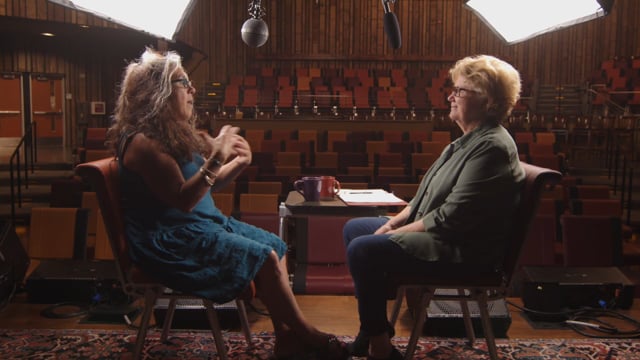This archive
is focused specifically on women who intentionally left the mainstream music industry to build a new vision for women. Connected to life’s daily conditions, this music turned many women from victims to warriors. There is no way to register the immense influence this music had on the expansion of feminism as well as the effect it had on the mainstream music scene, politics, health care, education, sports, fashion, the fight against racism, language, global solidarity and family relations.
It was not planned nor did it have a clearly articulated direction. It was a response to having been abandoned by family, considered mentally ill, refused high paying jobs, rejected by mainstream recording companies (for being out or outspoken), for challenging the fashions of the traditional female image. A community was built—one that was predicated on what could be both a solid and fragile relationship between artists, activists, presenters and audience. We were all new at becoming ourselves.
The lesbian bars and softball leagues had created a space for lesbians to gather. And then with the creation of lesbian identified songs, women flocked to the concerts—to see and hear themselves projected from the stage as well as to find one another in the audience. The lobbies were filled with tables introducing organizations, actions and future events. Some women had never heard a lesbian lyric, nor had ever been in a crowd of beautiful vibrant out lesbians. Whether 20 women in a small club or 1500 women at a big theater, these were life changing gatherings. Some came in full dyke regalia and others in disguise so as not to lose their day jobs if spotted—in particular, women from the military.
For this archive, Holly Near spoke with these artists, thinkers, peers, and friends. They discussed craft, the high notes, the music scene, body shaming, songwriting, touring, money, leadership, mental health and resistance—and there was laughter.
“As a producer, one has to review material again and again. And I have to say, I continue to be moved and inspired by these conversations.” – Holly
Click or tap the videos below to watch.
Conversations with Rhiannon, Vicki Randle, Judith Casselberry, Ginny Z. Berson, Krissy Keefer, Lakota Harden, Liche Fuentes, June Millington and Ann Hackler, Angela Wellman, Elizabeth Seja Min, Barbara Higbie, Ellen Seeling and Jean Feinberg, Sally Roesch Wagner, Peggy Berryhill, Patricia Thumas, and Crys Matthews and Heather Mae


